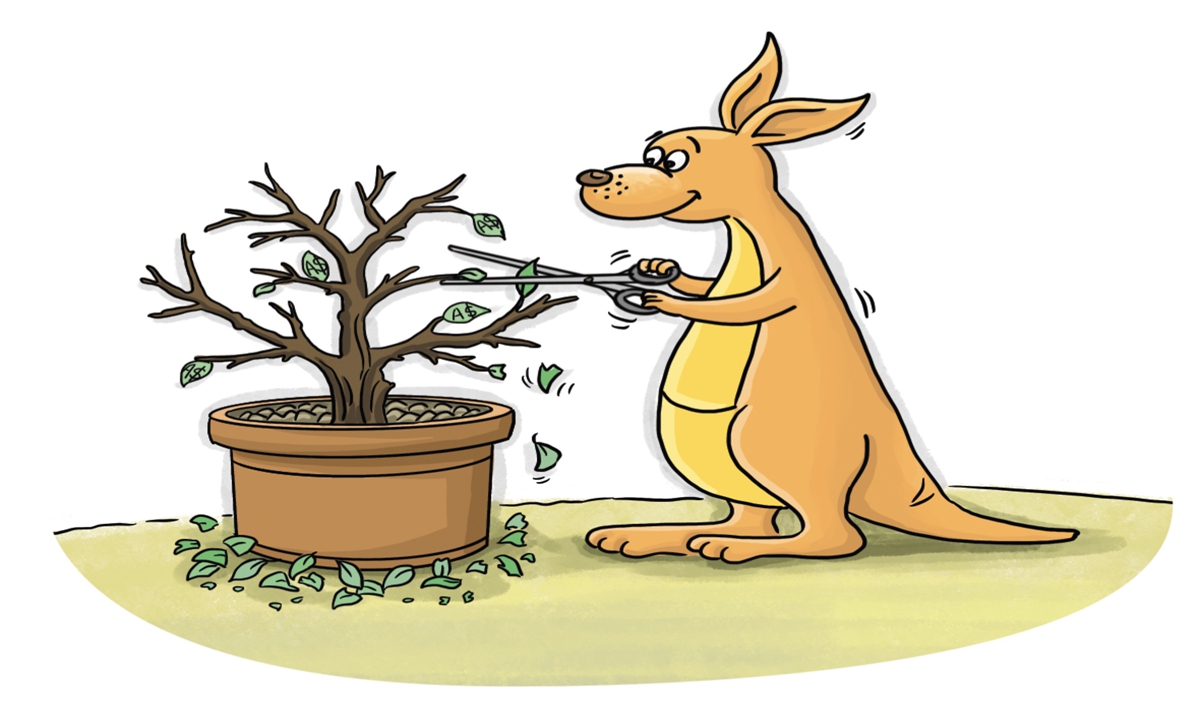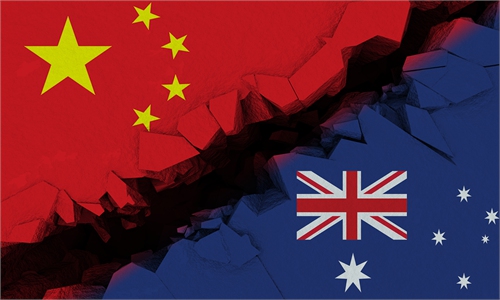
Illustration: Xia Qing/GT
The chill within the China-Australia relationship has been doing an increasingly apparent damage to the foundation of bilateral economic and trade cooperation.
More Australians view China as a security threat than an economic partner, according to the Lowy Institute's 2021 poll published on Tuesday. Among the more than 2,200 Australians surveyed in March, only 34 percent chose to define China as an economic partner when asked whether China was more of an economic partner or more of a security threat to Australia. That represented a 21-percentage drop compared with last year's 55 percent, according to media reports.
The figure that reflects the dramatic change in Australian attitude to economic ties with China deserves attention, and it may be difficult to reverse the Australian public's growing dissatisfaction and pessimism toward bilateral economic and trade relations, which in return dictates the market atmosphere for trading activities between the two sides and leads to heightened tensions.
While it is hard to tell whether the poll by the Lowy Institute is enough to show the real picture of Australians' view about China trade, it is equally undeniable that there are still Australians calling for stronger economic and trade ties with China, especially in the wake of a global pandemic.
Western Australian Premier Mark McGowan last week reportedly urged Canberra to stop escalating tensions with Beijing, calling for "a national reset" in bilateral relationship. This is because Chine remains Australia's largest trading partner despite frequent trade frictions in recent months. In the 12 months to March, Australia exported AU$149 billion ($112.5 billion) worth of goods to China.
Regrettably, despite a handful of rational voices and inherent resilience in bilateral trade, Canberra appears to have abandoned any intention to bring bilateral trade back on track.
At present, concerns over bilateral trade relations have largely dominated the market, and the Morrison government needs to take the responsibility for the situation and reflect on the root cause. Canberra continues to interfere in China's domestic affairs, sought to damage China's interests and adopted discriminatory trade practices. And ever since bilateral trade ties began to deteriorate, Canberra jumped on an opportunity to politicize trade setbacks and play up the so-called "economic coercion" theory while calling for a tougher stance among its allies toward China.
Canberra's lack of sincerity in reestablishing mutual trust and good faith in working with China is creating potential long-lasting damage amongst citizens of both countries. Should Canberra insist on continuing down this path, it will become increasingly difficult to return to equilibrium.



